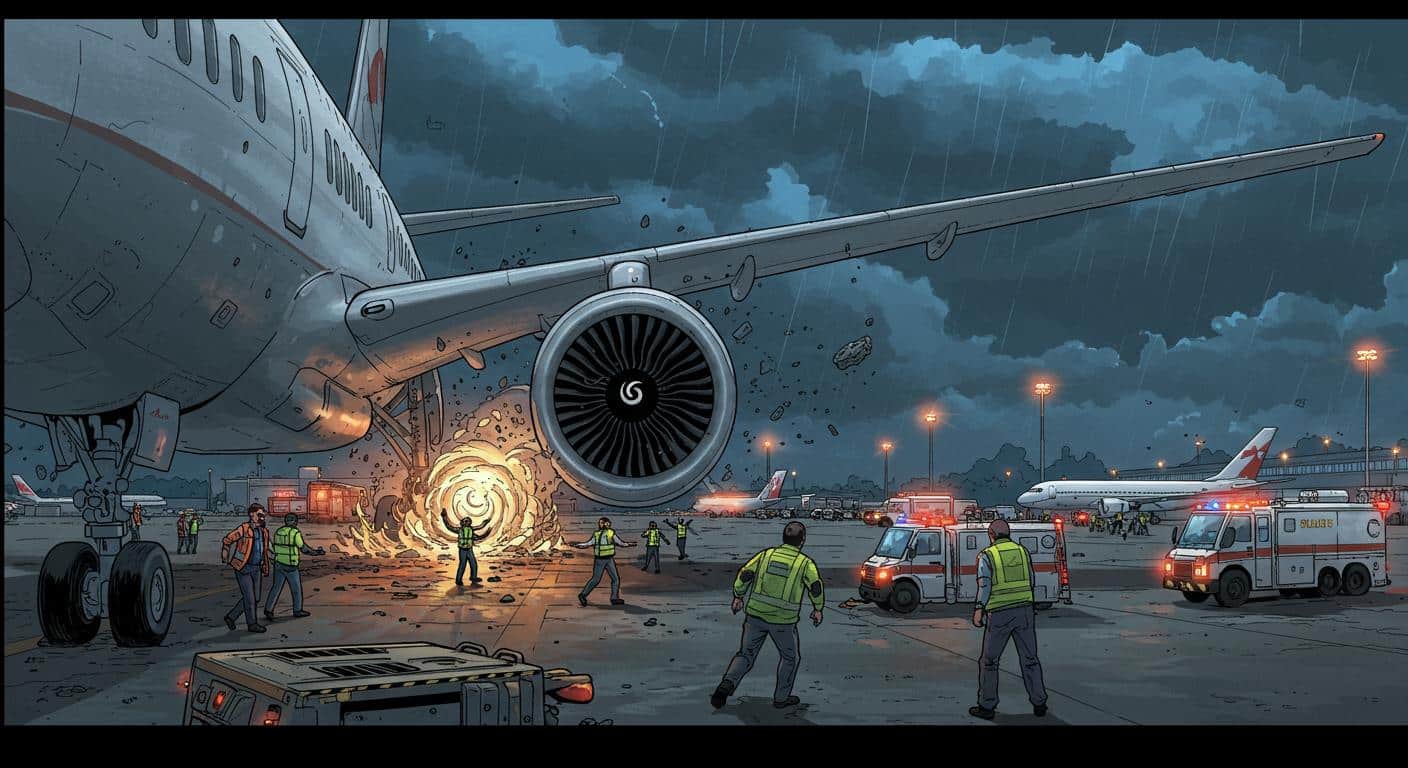Let’s be honest: the phrase “unexpected travel disruption” usually conjures up images of misplaced luggage, a stubborn GPS, or the perennial “technical difficulties.” But sometimes, the reason for a delay is so profoundly outside the usual that it files itself directly into the realm of the truly bizarre.
On Tuesday morning, Milan Bergamo International Airport in northern Italy found itself at the heart of just such an incident. Reporting from Sky News reveals that airport operations came to a halt after a man, identified by police as a 35-year-old with no official ties to the terminal, ran onto the runway and was killed after reportedly entering a running aircraft engine. Authorities explained to the outlet that the individual arrived by car—driving the wrong way down a road—abandoned the vehicle, proceeded through the airport terminal, and accessed an emergency exit leading straight onto the airfield. Several witnesses described how police and airport security gave chase but were unable to intervene before the tragedy occurred. Officials emphasized that the man was neither a passenger nor an employee.
The resulting disruption stretched from 10:20am to 12:00pm local time, as confirmed by a Bergamo airport spokesperson in statements detailed by multiple news outlets. During this interval, all flight operations ceased while investigators and emergency personnel responded on the scene. According to Volotea, the Spanish carrier involved, “All 154 passengers and 6 crew are safe… We are doing everything possible to support the affected passengers and crew, providing them with psychological support, while working in close coordination with the Italian authorities.” As noted by the airline’s statement on X, the incident occurred just as flight V73511 was preparing to depart for Asturias, Spain.
Security and the Unthinkable
Details provided in the Bristol Post chronicle the larger operational impact: a series of cascading cancellations, flight diversions to alternate airports in Bologna, Verona, and Milan Malpensa, and some 19 flights ultimately affected as per data from flight tracking platforms. The article, drawing on both airport sources and official channels, also underscores that the man implicated was neither a traveler nor part of the airport workforce. Corriere della Sera, cited in the report, echoes that he somehow bypassed security and managed to reach the taxiway amid heightened activity as the aircraft readied for take-off.
Airport operator SACBO acknowledged in a public update, “flight operations at Milan Bergamo Airport were suspended at 10:20am due to a problem that occurred on the taxiway. The causes of the problem are currently being investigated by the authorities.” Security has since been tightened, and the area where the incursion took place remains under scrutiny as officials seek to understand how perimeter defenses were pierced so decisively. The outlet also notes that the probe is focused on the speed and ease with which the individual reached an active jet engine—an outcome difficult to explain given the multiple layers of protocols typically in place.
Agenzia Nova catalogued the official line: police are investigating both the specifics of the breach and the broader circumstances surrounding the access, with investigators withholding further details as they attempt to piece together motive and timeline.
When “Unexpected Delay” Has a New Meaning
Travelers often brace for disruption by imagining storms, mechanical trouble, or the errant flock of birds. To have a runway closed because a member of the public bypassed security, ran straight at a plane, and created a scenario straight from aviation folklore—that’s another category of improbable altogether.
Most in the terminal will, understandably, find it difficult to process. Volotea’s rapid deployment of psychological support suggests an awareness of just how surreal and traumatic the event was for everyone directly involved. The mere idea that someone could slip through the tight mesh of airport security and find themselves in the very shadow of an engine invokes a few uneasy questions: what other weak links exist, and how do you even prepare for something so willfully unpredictable?
Authorities are now examining each link in the access chain, as previously reported, to prevent future incidents—rare as they might be. For those caught in the aftermath, there’s little solace in statistics or the phrase “freak accident.” Occasionally, reality takes a sudden, grim detour into the unthinkable—leaving everyone from travelers to tarmac staff with one simple, honest reaction: “Did that really just happen?”
So next time you’re gripping your boarding pass and checking for delays, remember: sometimes, normal is plenty interesting on its own. Stories like this are a stark reminder that “delay due to unforeseen circumstances” doesn’t always mean what you think.







